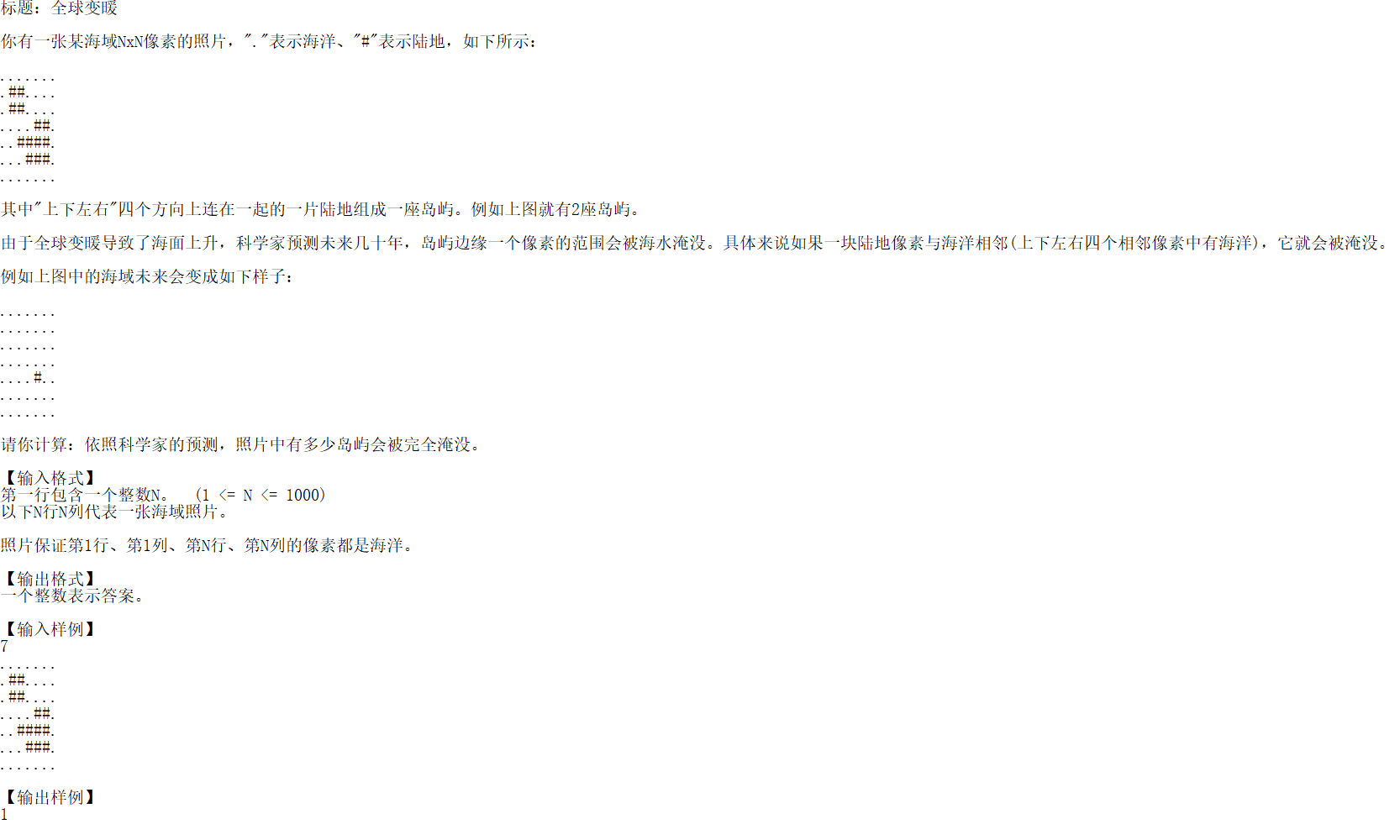法一
1 | #include<iostream> |
思路2
1 如何判断有几个岛屿?想用dfs判断,做多遍dfs。这个思路是对的,其实我们用两个for循环搜索第一个未被访问过的#, 做dfs就好。
2 怎么把每个岛屿记录下来?之后判断岛屿是否会被全部淹没。但是其实这个过程我们可以在找岛屿的过程中就进行判断,判断在该岛屿中是否存在一个点#,它的四周都是#
1 | #include<iostream> |
法三
用bfs去求出一共有多少个岛,再求出有多少个岛不会被完全淹没,然后相减就是会被完全淹没的个数1
2
3
4
5
6
7
8
9
10
11
12
13
14
15
16
17
18
19
20
21
22
23
24
25
26
27
28
29
30
31
32
33
34
35
36
37
38
39
40
41
42
43
44
45
46
47
48
49
50
51
52
53
54
55
56
57
58
59
60
61
62
63
64
65
66
67#include <bits/stdc++.h>
#define maxn 1005
using namespace std;
struct Node{
int x,y;
}S,Next, Now;
int dir[4][2] = {1,0, 0,1, -1,0, 0,-1};
bool vis[maxn][maxn];
string str[maxn];
int n,m;
bool flag;
bool Check(int x,int y){
for(int i=0;i<4;i++){
int X = x + dir[i][0];
int Y = y + dir[i][1];
if(str[X][Y] == '.') return false;
}
return true;
}
bool in(int x,int y){
if(x >= 0 && y >= 0 && x < n && y < n && str[x][y] == '#' && vis[x][y] == false) return true;
return false;
}
void bfs(int x,int y){
queue<Node> q;
S.x = x;
S.y = y;
q.push(S);
while(!q.empty()){
Now = q.front();
q.pop();
if(Check(Now.x, Now.y)){
flag = true;
}
for(int i=0;i<4;i++){
Next.x = Now.x + dir[i][0];
Next.y = Now.y + dir[i][1];
if(in(Next.x, Next.y)){
vis[Next.x][Next.y] = true;
q.push(Next);
}
}
}
}
int main()
{
scanf("%d",&n);
for(int i=0;i<n;i++) cin>>str[i];
memset(vis,false,sizeof(vis));
int ans = 0, cnt = 0;
for(int i=0;i<n;i++){
for(int j=0;j<n;j++){
if(str[i][j] == '#' && vis[i][j] == false){
flag = false;
bfs(i, j);
ans ++;
if(flag == true) cnt ++;
}
}
}
printf("%d\n", ans - cnt);
return 0;
}
参考链接
https://blog.csdn.net/charles_zaqdt/article/details/79786821
https://www.cnblogs.com/wkfvawl/p/10547467.html
